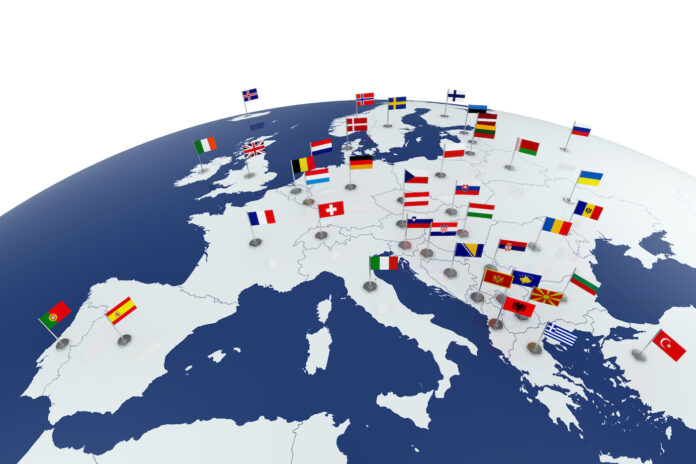In most industries, companies in Europe and the United States see eye to eye and have an interdependent relationship. In the brief history of the cannabis industry, however, this has not been the case.
While the U.S. recreational market has grown steadily over the past decade, European countries have taken a much slower and more methodical approach heavily focused on medical programs, public safety, and inhibiting the illicit market. With a strict regulatory environment, a growing number of medical research projects, and the involvement of pharmaceutical companies, European countries have established strong medical programs and only now are taking baby steps toward recreational use. Switzerland, the Netherlands, and Germany all have begun pilot recreational programs, some of which even allow for home cultivation and nonprofit social clubs.
The European cannabis market, valued at approximately $2.17 billion in 2023, is projected to grow at a compound annual rate of 19.3 percent, reaching about $11.09 billion by 2032, according to Benzinga. Thus far, Germany, the United Kingdom, Italy, and the Netherlands are leading the way.
While the figures may seem small compared to the U.S. market, which is expected to generate $43 billion in revenue in 2024, Europe has some advantages over the U.S. in terms of stability and regulatory structure that may create a steadier, more predictable path forward. As the industry enters a period when pharmaceutical companies are beginning to take an interest in forming partnerships and developing targeted products, Europe could be poised to take a more prominent role in the international market.
Will Muecke is the co-founder of Artemis Growth Partners, which has created one of the largest investment funds in the European cannabis market over the past six years. He predicts patients in Germany will number more than one million within the next year, generating €500–600 million in sales. In 2025, revenue could triple.
“Europe really presents a great opportunity to play with small dollars today that will be very large dollars in the future, because the market is so sizable and the regulations are going to favor cannabis,” he said. “The trend right now is government looking for opportunities to create jobs and raise tax revenue in a legal way that has permanence so the industry can take root. In the UK alone, letting the medical side of cannabis flourish could produce a quarter million permanent jobs and £2 billion to £5 billion annually in tax revenues.”
On the whole, Europe also has been fairly successful at limiting diversion, creating a legal market that remains price-competitive with the underground market—in stark contrast with the U.S. industry. Once Germany and other countries move forward more aggressively with adult-use legalization, Muecke expects many consumers to leave the illicit market behind.
“A conservative guess is that there are about five million sort-of-illicit consumers, or ‘self-prescribing’ patients, in Germany, and we’ve heard numbers more like seven million,” said Muecke. “So, if you just get some portion of that market to move from illegal supply to legal supply, you can easily see our patient numbers go from two million to four million without a lot of effort. And that’s not even talking about the folks that have yet to try cannabis.”
With Germany leading the way in many respects, politicians throughout Europe increasingly accept the plant. The next few years look promising for more liberal legislation that should pave the way for market growth similar to what the U.S. is experiencing.
“I don’t want to be leading people astray, but I think it’s a really well-structured, protected market with high barriers to entry and significant growth,” said Muecke. “That’s why so many folks—especially given the contrast of what’s happening in Canada and the U.S.—are now spending a lot of time on planes flying over here to figure out what’s going on.”











